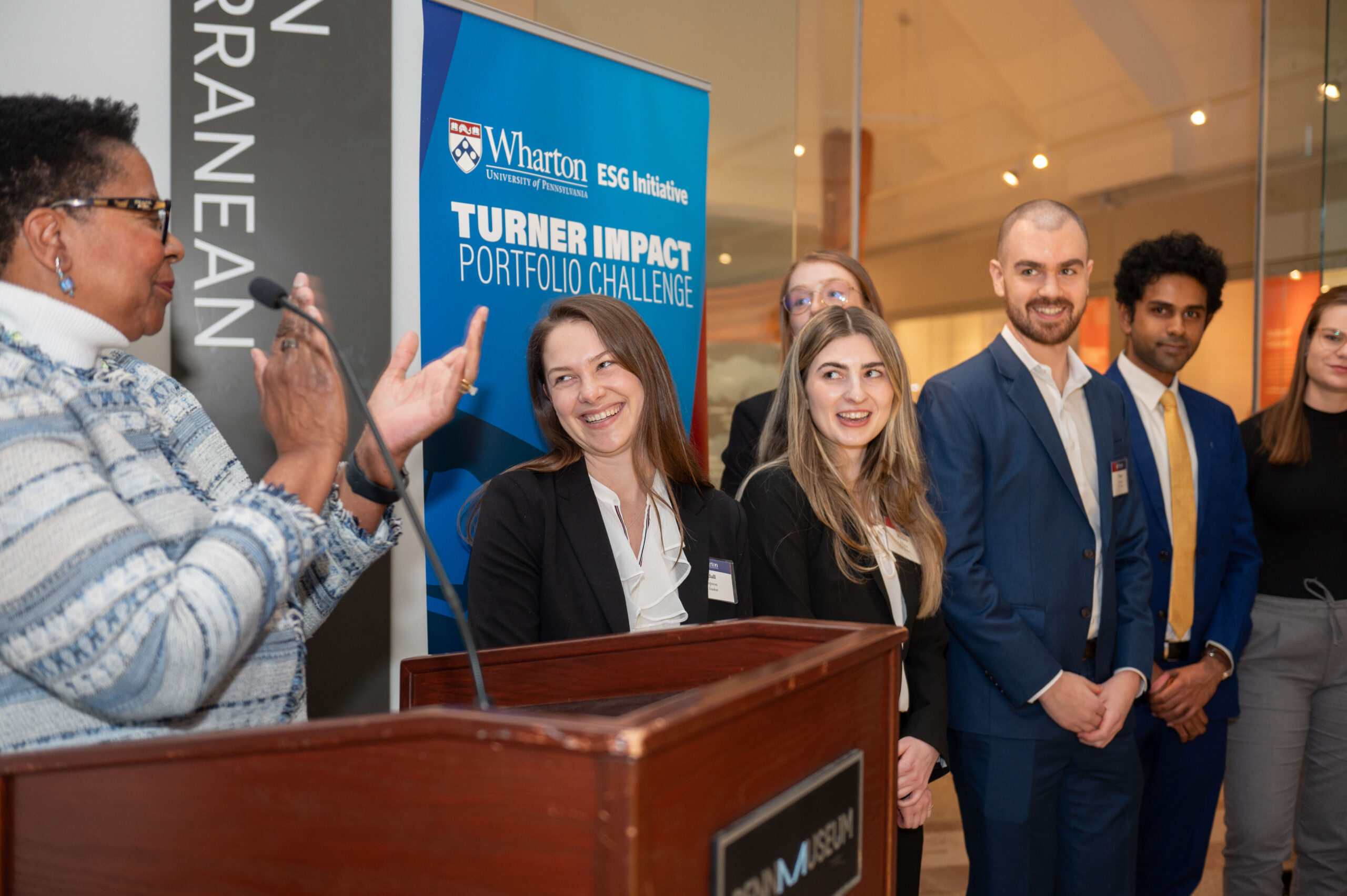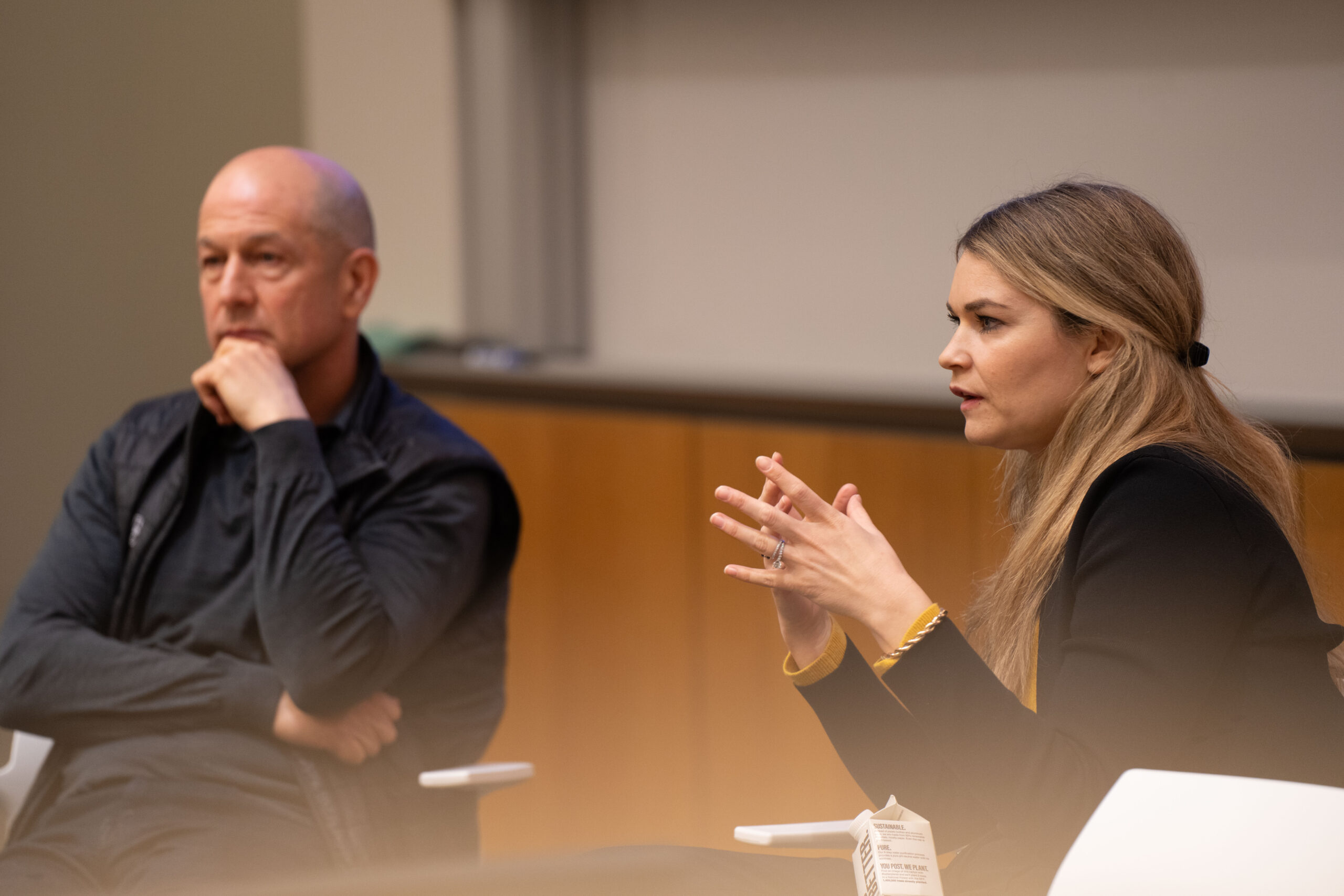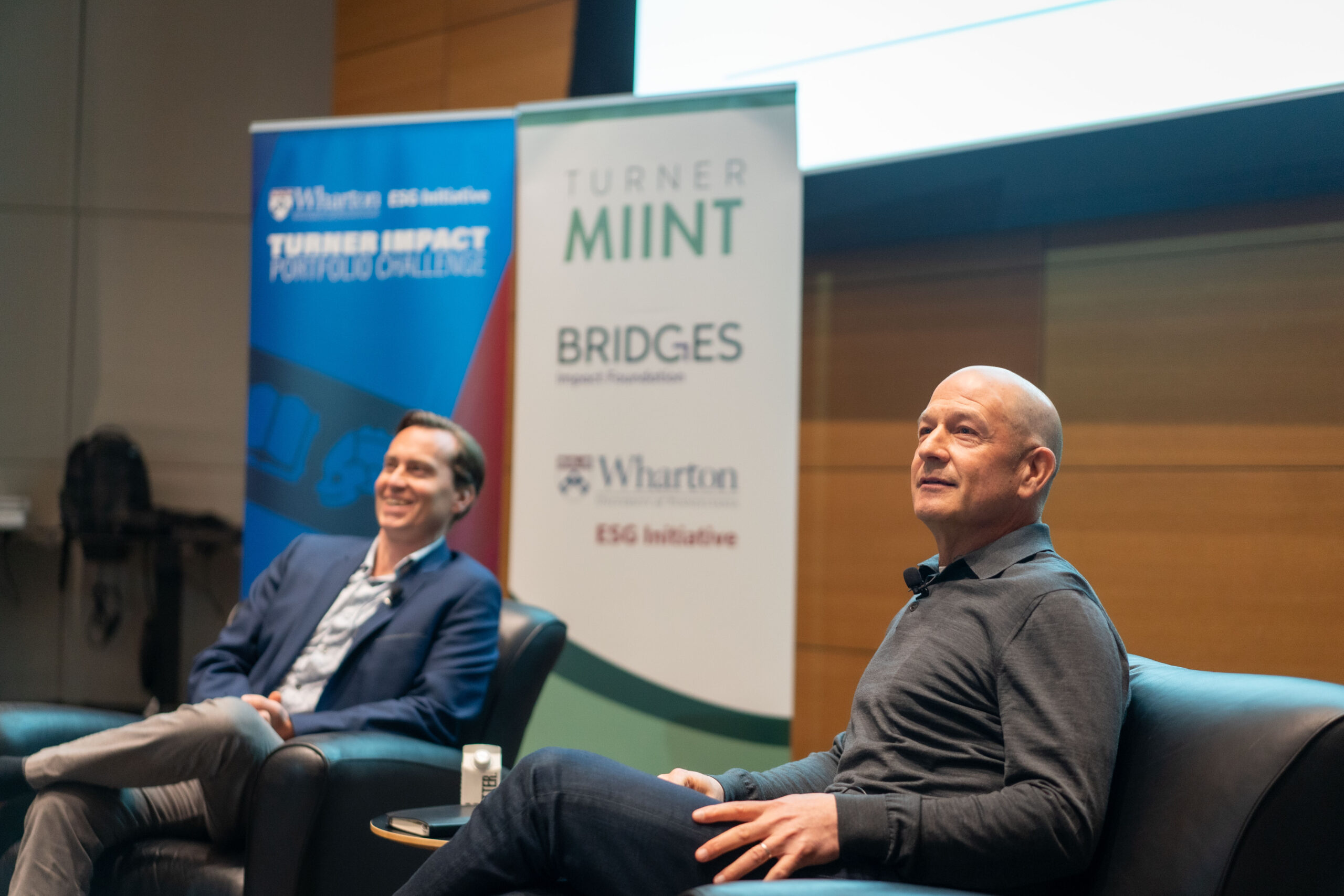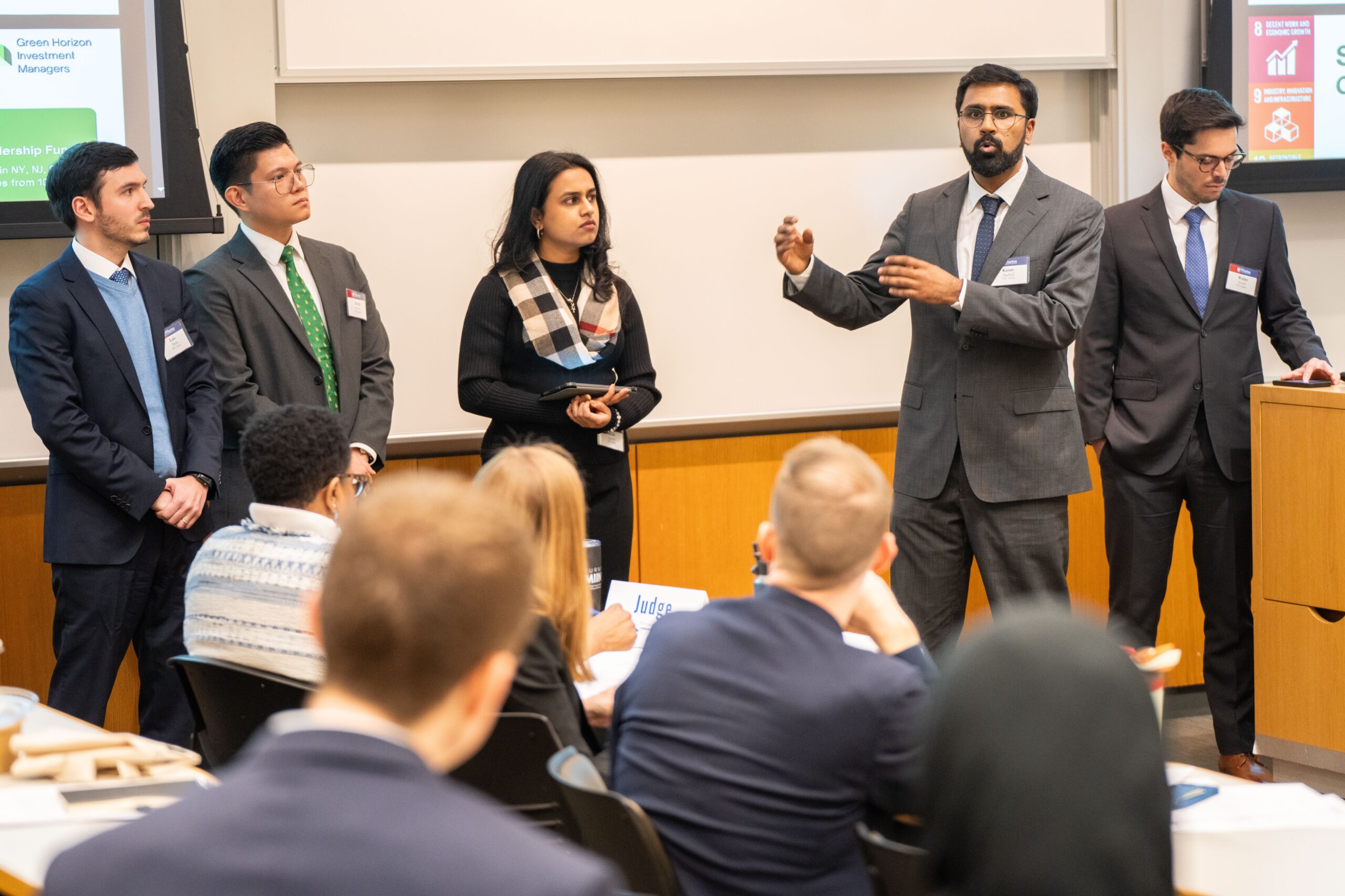Leading the Way in ESG Investing: 2024 Turner Impact Portfolio Challenge
The Turner Impact Portfolio Challenge (TIPC) gives students skills and experience in designing investment portfolios that maximize impact. A team from Bard College won the 2024 competition.
Increasingly, institutional investors are seeking to make impact across asset classes: venture capital, public equities, fixed income, alternatives, and more. Enter the Turner Impact Portfolio Challenge (TIPC).
Now in its sixth year, TIPC is a year-long, graduate student ESG investing competition produced by the ESG Initiative at the Wharton School and supported by naming sponsors Bobby and Lauren Turner and founding corporate sponsor Bank of America. This year, 175 students spanning over 40 teams from 16 universities across the U.S. participated in total. These students join hundreds of TIPC alumni across the country who have completed the program.
In April 2024, finalists traveled to the Wharton School at the University of Pennsylvania to present their pitch at the annual final competition. The immersive experience gave students the opportunity to network with fellow graduate students, observe each other’s presentations, and learn from senior industry leaders during a careers panel.
Participants were welcomed to Wharton by Dean Erika James, followed by a keynote and fireside chat with Bobby Turner, W’84 and Principal and CEO of Turner Impact Capital, and Tyler Wry, Associate Professor of Management and Co-Director of the Wharton ESG Initiative’s Impact Investing Research Lab.
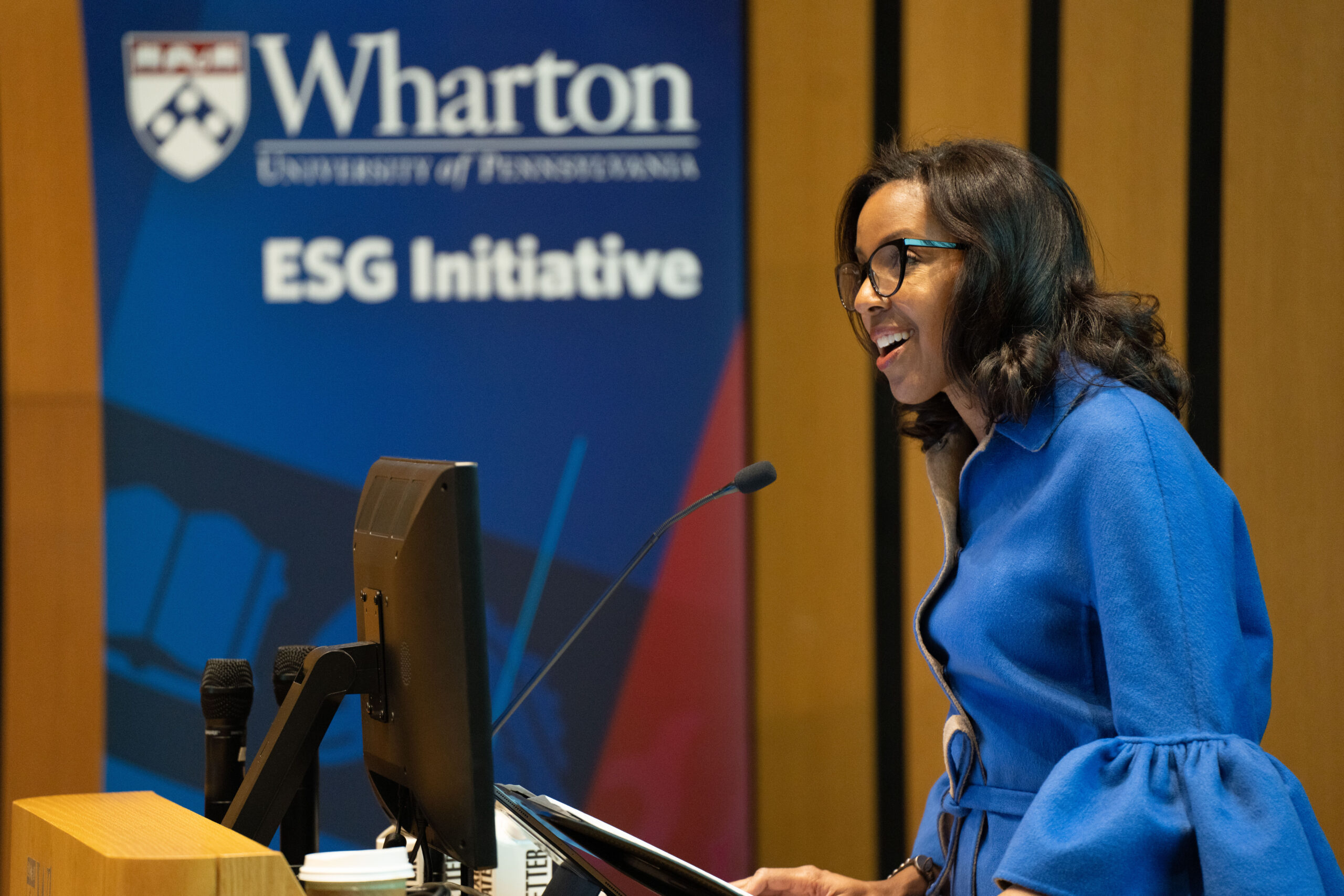
“The Turner Impact Portfolio Challenge serves as a beacon of hope for a more equitable and sustainable future.”
– Erika James, Dean of the Wharton School
Dean James shared, “The Turner Impact Portfolio Challenge serves as a beacon of hope for a more equitable and sustainable future. By empowering students to design and manage real-world impact investing portfolios, this competition not only fosters the development of practical skills but also fosters a deep-seated understanding of the pivotal role that finance plays in driving social and environmental progress.”
How It Works
Each year the program invites student teams to put theory into practice and incorporate ESG factors in portfolio construction. This year’s cohort was tasked with transitioning a fictional state pension fund portfolio to net zero by 2050; maximizing ESG impact; and maintaining the fund’s strong investment performance.
The student teams spent the academic year identifying specific securities, funds, and investments to include in their client’s portfolio. In addition, they were charged with demonstrating how the portfolio meets the pension fund’s impact goals, financial return goals, target asset allocation, and risk tolerance.
Not all asset classes offer easy-to-find, investable opportunities. Participating students were encouraged to leverage their unique fields of expertise and be creative in their approach and analysis of impact. To aid in this process, industry experts met with the students throughout the portfolio construction phase to guide them through the cutting-edge investment tools at their disposal and how to identify investment opportunities.
“Many business school students will go on to work in portfolio management,” said Bobby Turner, W’84, sponsor of TIPC. “Their ability to understand impact and ESG factors in their investment analysis makes them desirable hires for businesses where these factors are of growing importance.”
The program kicked off with an orientation session led by Rajith Sebastian, Head of Impact Investments at the Wharton ESG Initiative, and Andrew Siwo, Head of Sustainable Investments and Climate Solutions at New York State Common Retirement Fund, where they walked students through the profile and discussed possible strategies. Later in the semester, Katerina Gradovich, Due Diligence Officer at Bank of America, spoke with students about selecting fund mangers. Finally, in the spring students heard from Mirko Heinle, Associate Professor of Accounting at the Wharton School, on ESG reporting, greenwashing, and greenhushing.
ESG Book, Toniic, Arabesque, Commonfund Institute, and Align Impact served as content contributors and supported students with networking, investment tools, and case studies. Students also learned through Wharton Online’s four-part Materiality of ESG Factors Specialization.
Guidance from Bank of America
Throughout the year, 34 volunteers from Bank of America — wealth advisors, analysts, portfolio managers, and sustainability experts — served as coaches to TIPC teams. They guided students as they worked through the program, sharing their expertise on topics including asset allocation, portfolio construction, due diligence, manager selection, and more.
Sarah Norman, head of the Chief Investment Office’s ESG Thought Leadership team at Bank of America shared, “Each year, our Bank of America team members pride themselves on being active coaches and judges for the students.”
In reflecting on this year’s competition, she said, “This year, more than ever, we’ve been so impressed by the standard and sophistication participating students have displayed in the sustainable and impact investing arena. We’re excited to see this momentum and see the students – our future business leaders – taking such an active role in the intersection of finance and sustainability. It bodes well for the future of impact investing!”
And the Winner is…
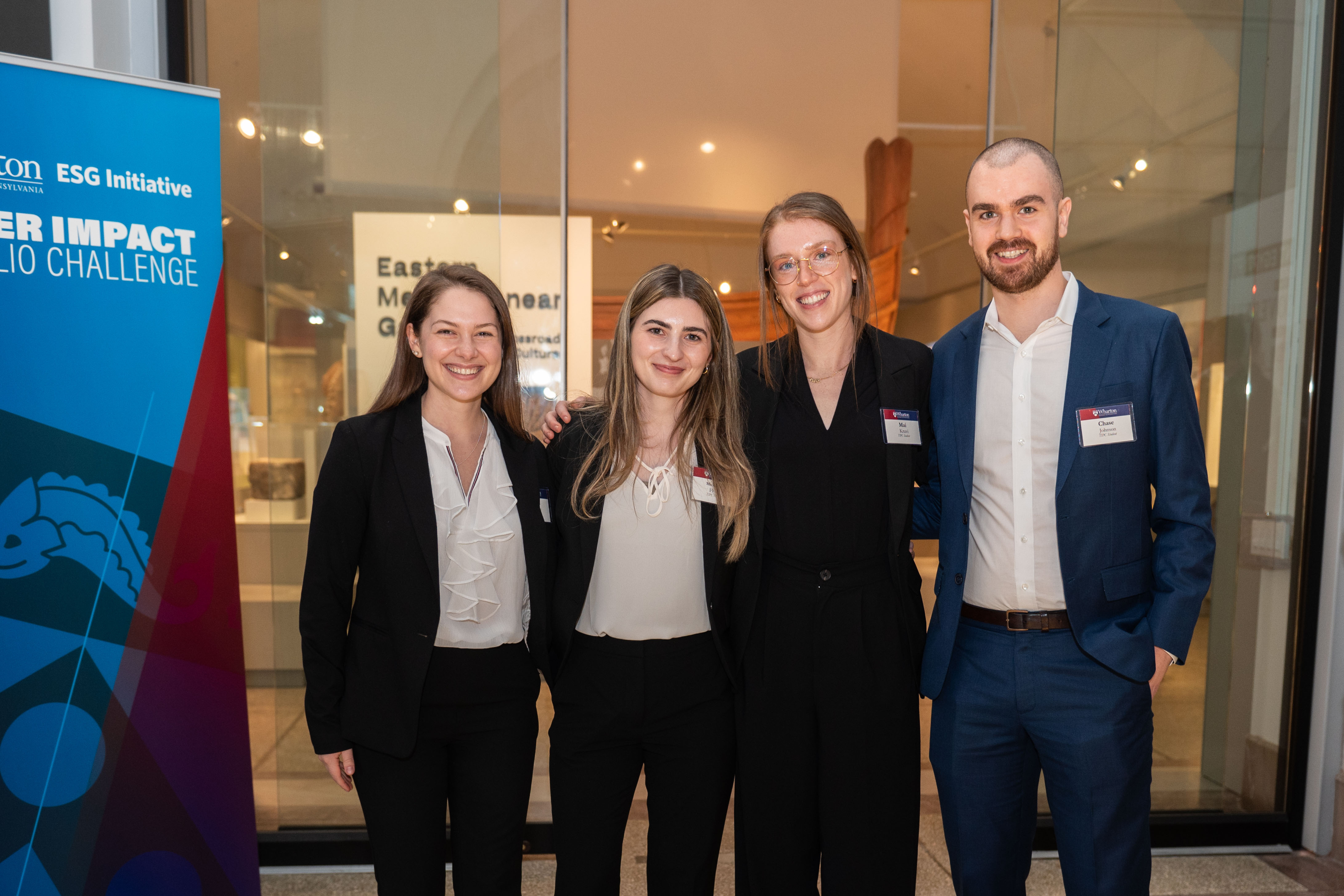
“While we embark on the next steps in our careers, we will take forward the many lessons learned throughout the competition and from all those involved.”
– Chase Johnson, Bard College MBA 2025
Michaela Flynn, Chase Johnson, Mai Kruvi, and Kendall Thompson from Bard College won the competition with a portfolio that aimed to meet the financial, decarbonization, and impact goals of the pension fund through activist positions in utilities, shareholder advocacy, and a gender lens when selecting assets and asset managers.
Chase Johnson shared, “We felt our strength was in our creativity and willingness to take positions outside of the norm, while still demonstrating how these methods can meet the objectives of a pension and its beneficiaries. In practice, this meant honing in on a set of issues and creating our own theory of change based on the pension’s objectives. This helped our team to push boundaries and take a cohesive approach to the portfolio design.”
Johnson reflected, “The TIPC experience was wonderful. We found it extremely rewarding to see the same energy, excitement, and dedication to generating positive impacts through thoughtful portfolio construction from our peers. While we embark on the next steps in our careers, we will take forward the many lessons learned throughout the competition and from all those involved.”
Runner-Up
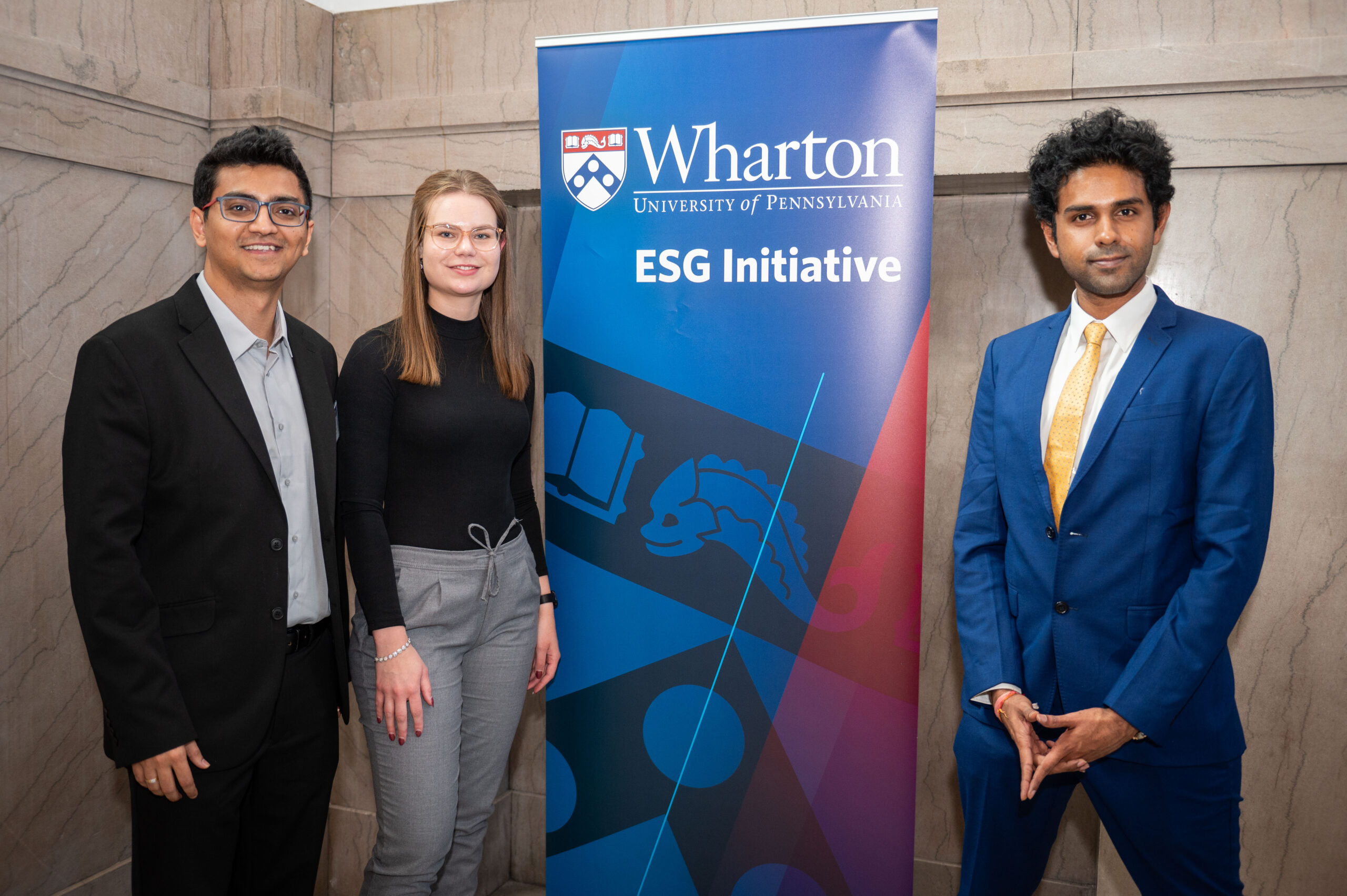
“The program offers a valuable chance to understand how integrating ESG and climate impact factors can improve long-term risk-adjusted returns.”
– Adeniyi Ashaolu, Fletcher School at Tufts University MIB 2025
Adeniyi Ashaolu, Charlotte Lammel, Abhishek Raj, and Krunal Thakkar from the Fletcher School at Tufts University were the runner-up team.
Adeniyi Ashaolu shared, “The TIPC prompted us to deeply consider the roles of different entities in the global financial framework and the possibility of collaboration to achieve a net-zero outcome. The program offers a valuable chance to understand how integrating ESG and climate impact factors can improve long-term risk-adjusted returns.”
“The competition has provided our team with an exceptional opportunity to delve into sustainable investing and devise innovative solutions for addressing issues like just transition and worker’s rights. We strongly recommend the program to any graduate student interested in sustainable investing,” closed Ashaolu.
Judges
Judges for the 2024 competition included Nicholas Ashburn (Head of Responsible Investing and Managing Director, AMG Investment Office at PNC Bank), Mary Stokes (Managing Director and Institutional Market Investment Executive, Institutional Investments at Bank of America), and Bonnie Treichel (Chief Solutions Officer at Endeavor Retirement).
Mary Stokes shared, “I look forward to judging TIPC every year. The enthusiasm, creativity, and thoughtfulness expressed by the students showcases untapped talent and gives me hope for the future of this profession. Seeking financial returns through a sustainable and impact investing lens continues to be relevant and important to institutional clients.”
Following each presentation, the judges engaged with the student team for a detailed question and answer session, simulating the experience of a presentation with feedback from clients. This feedback is a key part of the process.
Ashaolu said, “The insightful feedback from our mentor and judges has offered us a practitioner’s perspective on navigating challenges related to constructing and executing a sustainable investment portfolio.”
Yuri Seung, Program Manager at the ESG Initiative at the Wharton School shared, “We hope this program will continue to help students develop their interest in ESG and impact investing and make lasting connections in the industry.”
Get Involved with the TIPC
The TIPC competition will return next academic year, and all graduate students interested in participating will be able to apply in September. We are excited to welcome new schools to participate in the coming year. Learn more about the program and its process at the link below.



